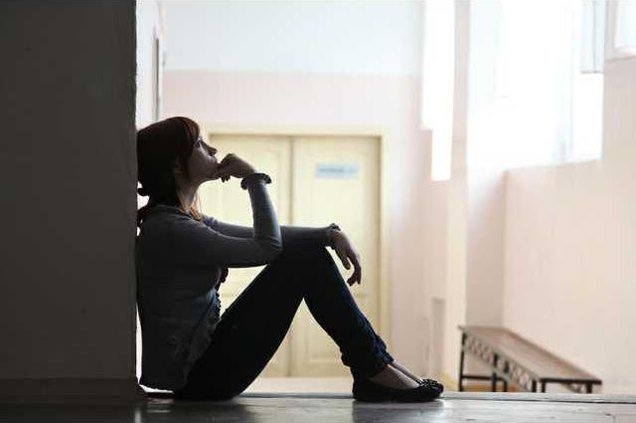A Brown University student who had a mental breakdown before being put on medical leave has engaged in a dogged and so-far futile attempt to return to the campus, Buzzfeed reports, despite his having given up all alcohol and drugs and getting therapy.
And Dave, the nickname Buzzfeed used to protect the student's privacy, is far from alone in the stress he faced.
"The emotional health of incoming college freshmen is at its lowest point in at least three decades, according to the annual American Freshman Survey," Buzzfeed notes. "More than 30 percent of students say they have felt so depressed in the past year that it was difficult to function, according to the American College Health Association, and more than half have felt overwhelming anxiety. Suicide is the second-leading cause of death among college-age students."
Nor is he alone in how the university responded. Last year, Newsweek reported that universities around the country are pushing students with psychiatric challenges out on "medical leave" and then refusing to allow them to return.
"Despite that very clearly stated law," Newsweek wrote, "dozens of current or recent students at colleges and universities across the country large and small, private and public told Newsweek they were punished for seeking help: kicked out of campus housing with nowhere else to go, abruptly forced to withdraw from school and even involuntarily committed to psychiatric wards."
Much of this seems to border on if not cross the line of illegality. As Buzzfeed notes, "under federal civil rights laws, schools can only remove a student with mental health issues from school if they pose a direct, significant threat to others that cant be eliminated by additional supports and services."
Buzzfeed linked to a guide by the Bazelon Center for Mental Health, which offers students a detailed guide about their rights and what they can expect if they seek mental health services on campus.
College students aren't just depressed. They are also increasingly anxious.
The New York Times recently took a hard look at college anxiety, which has grown quickly to catch and eclipse depression.
The Times piece focused on the University of Central Florida in Orlando, where anxiety therapy can be quite cuddly. Many students will hold therapy dogs during counseling sessions.
"Because of escalating pressures during high school, he and other experts say, students arrive at college preloaded with stress," the New York Times reported. "Accustomed to extreme parental oversight, many seem unable to steer themselves. And with parents so accessible, students have had less incentive to develop life skills."
A lot are coming to school who dont have the resilience of previous generations, one counselor told the New York Times. They cant tolerate discomfort or having to struggle. A primary symptom is worrying, and they dont have the ability to soothe themselves.
And Dave, the nickname Buzzfeed used to protect the student's privacy, is far from alone in the stress he faced.
"The emotional health of incoming college freshmen is at its lowest point in at least three decades, according to the annual American Freshman Survey," Buzzfeed notes. "More than 30 percent of students say they have felt so depressed in the past year that it was difficult to function, according to the American College Health Association, and more than half have felt overwhelming anxiety. Suicide is the second-leading cause of death among college-age students."
Nor is he alone in how the university responded. Last year, Newsweek reported that universities around the country are pushing students with psychiatric challenges out on "medical leave" and then refusing to allow them to return.
"Despite that very clearly stated law," Newsweek wrote, "dozens of current or recent students at colleges and universities across the country large and small, private and public told Newsweek they were punished for seeking help: kicked out of campus housing with nowhere else to go, abruptly forced to withdraw from school and even involuntarily committed to psychiatric wards."
Much of this seems to border on if not cross the line of illegality. As Buzzfeed notes, "under federal civil rights laws, schools can only remove a student with mental health issues from school if they pose a direct, significant threat to others that cant be eliminated by additional supports and services."
Buzzfeed linked to a guide by the Bazelon Center for Mental Health, which offers students a detailed guide about their rights and what they can expect if they seek mental health services on campus.
College students aren't just depressed. They are also increasingly anxious.
The New York Times recently took a hard look at college anxiety, which has grown quickly to catch and eclipse depression.
The Times piece focused on the University of Central Florida in Orlando, where anxiety therapy can be quite cuddly. Many students will hold therapy dogs during counseling sessions.
"Because of escalating pressures during high school, he and other experts say, students arrive at college preloaded with stress," the New York Times reported. "Accustomed to extreme parental oversight, many seem unable to steer themselves. And with parents so accessible, students have had less incentive to develop life skills."
A lot are coming to school who dont have the resilience of previous generations, one counselor told the New York Times. They cant tolerate discomfort or having to struggle. A primary symptom is worrying, and they dont have the ability to soothe themselves.








